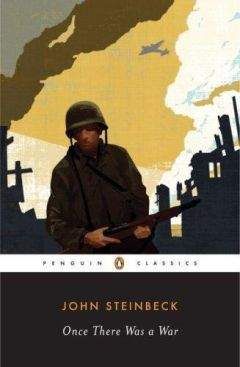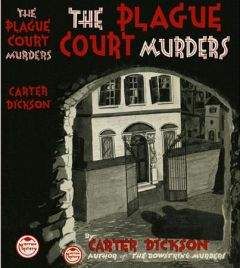When the supplies were landed the three paratrooper officers and the naval officers gathered in a little stone building on the waterfront. And an electric lantern was on the floor and the doors and windows were shut so that no line of light could show out. The faces were lighted from below and they were strained faces, with the jaw muscles pulled tight. The maps were out again.
“I’m not going to throw my men against a bigger force in the dark,” the captain of paratroopers said. “Jerry will be trenched by now. I’m not going to move until morning. We’ve only got half as many men and no artillery.”
An officer said, “Maybe—maybe we could talk them out of it. Let’s have some of the Italians in and see what we can do. The Jerry doesn’t know how many men we have or how many ships. Let’s think about that a little. It’s just barely possible we could talk them out of it.”
“How?” the captain asked.
“Well, would you let me go up with a white flag in the morning?”
“They’d bump you.”
“Would you let me try?”
“Well—”
“Might save a lot of trouble—sir—”
“We can’t afford to lose officers.”
“You won’t lose me. Just give me a nod.” The captain looked at him for a long time and then he smiled thinly and his head dipped, almost imperceptibly.
December 10, 1943—The lieutenant walked slowly up the hill toward the German positions. He carried his white flag over his head, and his white flag was a bath towel. As he walked he thought what a fool he was. He had really stuck his neck out. Last night when he had argued for the privilege of going up and trying to kid the Jerry into surrender he hadn’t known it would be like this. He hadn’t known how lonely and exposed he would be.
Forty paratroopers against eighty-seven Jerrys, but Jerry didn’t know that. The lieutenant also hoped Jerry wouldn’t know his guts were turned to water. His feet sounded loud on the path. It was early in the morning and the sun was not up yet. He hoped they could see his white flag. Maybe it would be invisible in this light. He kept in the open as much as possible as he climbed the hill.
He knew that the forty paratroopers were crawling and squirming behind him, keeping cover, getting into position so that if anything should go wrong they might attack and stand some chance of surprising the Jerry. He knew the fieldglasses of the captain would be on the German position, waiting for something to happen.
“If they shoot at you, flop and lie still,” the captain had said. “We’ll try to cover you and get you out.”
The lieutenant knew that if he were hit and not killed he would hear the shot after he was hit, but if he were hit in the head he wouldn’t hear or feel anything. He hoped, if it happened, it would happen that way. His feet seemed very heavy and clumsy. He looked down and saw the little stones on the path, and he wished he could get down on his knees to see what kind of stones they were. He had a positive hunger to get down out of line. His chest tingled almost as if he were preparing to receive the bullet. And his throat was as tight as it had been once when he tried to make a speech in college.
Step by step he drew nearer, and there was no sign from Jerry. The lieutenant wanted to look back to see whether any of the paratroopers were in sight, but he knew the Germans would have their fieldglasses on him, and they were close enough so that they could even see his expression.
It happened finally, quickly and naturally. He was passing a pile of rocks, when a deep voice shouted an order to him. There were three Germans, young-looking men, and they had their rifles trained on his stomach. He stopped and stared at them as they stared back. He wondered whether his eyes were as wide as theirs. They paused, and then a hoarse voice called from up ahead. The Jerries stood up and they glanced quickly down the hill before they came out to him. And then the four marched on. It seemed a little silly to the lieutenant, like little boys marching up an alley to attack Connor’s woodshed. And his bath towel on a stick seemed silly, too. He thought, Well, anyway, if they bump me our boys will get these three. In his mind’s eye he could see helmeted Americans watching the little procession through their rifle sights.
Ahead was a small white stone building, but Jerry was too smart to be in the building. A trench started behind the building and led down to a hole almost like a shell hole.
Three officers faced him in the hole. They were dressed in dusty blue and they wore the beautiful high caps of the Luftwaffe, with silver eagles and swastikas. They were electronics engineers, a ground service for the German Air Force. They faced him without speaking, and his throat was so tight that for a moment he could not begin. All he could think of was a green table; Jerry had three deuces showing and the lieutenant a pair of treys. He knew they had no more, but they didn’t know what his hole card was. He only hoped they wouldn’t know, because all he had was that pair of treys.
The Oberleutnant regarded him closely and said nothing.
“Do you speak English?” the lieutenant asked.
“Yes.”
The lieutenant took a deep breath and spoke the piece he had memorized. “The colonel’s compliments, sir. I am ordered to demand your surrender. At the end of twenty minutes the cruisers will move up and open fire unless ordered otherwise following your surrender.” He noticed the Oberleutnant’s eyes involuntarily move toward the sea. The lieutenant lapsed out of his formality, as he had planned. “What’s the good?” he said. “We’ll just kill you all. We’ve got six hundred men ashore and the cruisers are aching to take a shot at you. What’s the good of it? You’d kill some of us and we’d kill all of you. Why don’t you just stack your arms and come in?”
The Oberleutnant stared into his eyes. That what’s-in-the-hole look. The look balanced: call or toss in, call or toss in. The pause was centuries long, and then at last, “What treatment will we receive?” the Oberleutnant asked.
“Prisoners of war under Convention of The Hague.” The lieutenant was trying desperately to show nothing in his face. There was another long pause. The German breathed in deeply and his breath whistled in his nose.
“It is no dishonor to surrender to superior forces,” he said.
December 13, 1943—When the lieutenant went up to the Germans with his bath towel for a white flag, the captain of paratroopers, peering through a crack between two buildings, watched him go. The men hidden below saw the lieutenant challenged, and then they saw him behind the white stone building. The watching men hardly breathed then. They were waiting for the crack of a rifle shot that would mean the plan for kidding the Germans into surrender had failed. The time went slowly. Actually, it was only about fifteen minutes. Then the lieutenant appeared again, and this time he was accompanied by three German officers.
The watchers saw him walk down to a clear place in the path and there pause and point to the ground. Then two of the officers retired behind the white building again. But in a moment they reappeared, and behind them came the German soldiers. They straggled down the path and, at the place that had been indicated, they piled their arms, their rifles and machine guns, and even their pistols. The captain, lying behind his stones, watched and counted. He tallied the whole eighty-seven men who were supposed to be there. He said to his lieutenant, “By God, he pulled it off!”
And now a little pageant developed. As the Germans marched down the path, American paratroopers materialized out of the ground beside them, until they were closely surrounded by an honor guard of about thirty men. The whole group swung down the path and into the little white town that stood so high above the harbor of Ventotene.
Since Ventotene had been for hundreds of years an Italian prison island, there was no lack of place to put the prisoners. The top floor of what we would call a city hall was a big roomy jail, with four or five big cells. The column marched up the steps of the city hall and on up to the third floor, and then the Germans were split into three groups and one group was put into each of three cells, while the fourth cell was reserved for the officers. Then guards with tommy guns were posted at the doors of the cells, and the conquest was over.
The lieutenant who had carried the white flag sat down on the steps of the city hall a little shakily. The captain sat down beside him. “Any trouble?” the captain asked.
“No. It was too easy. I don’t believe it yet.” He lighted a cigarette, and his shaking hand nearly put out the match.
“Wonderful job,” the captain said. “But what are we going to do with them?”
“Won’t the ships be back tonight?”
“I hope so, but suppose they don’t get back. We can’t let anybody get any sleep until we get rid of these babies.”
A trooper lounged near. “Those Jerry officers are raising hell,” he said. “They want to see the commanding officer, sir.”
The captain stood up. “Better come with me,” he told the lieutenant. “How many men did you tell them we had?”
“Six hundred,” the lieutenant said, “and I forgot how many cruisers offshore.”
The captain laughed. “One time I heard about an officer who marched fifteen men around a house until they looked like an army. Maybe we better do that with our forty.”
At the door of the officers’ cell the captain took out his pistol and handed it to one of the guards. “Leave the door open and keep your eye on us all the time. If they make a suspicious move, shoot them!”
“Yes, sir,” said the guard, and he unlocked and opened the heavy door.
The German officers were at the barred window, looking down on the deserted streets of the little town. They could see two lonely sentries in front of the building. The German Oberleutnant turned as the captain entered. “I demand to see the colonel,” he said.
The captain swallowed. “Er—the colonel? Well, he is engaged.”
For a long moment the German stared into the captain’s eyes. Finally he said, “You are the commanding officer, aren’t you?”
“Yes, I am,” the captain said.
“How many men have you?”
“We do not answer questions,” the captain said stiffly.
The German’s face was hard and disappointed. He said, “I don’t think you have six hundred men. I think you have only a few more than thirty men.”
The captain nodded solemnly. He said, “We’ve mined the building. If there is any trouble—any trouble at all—we’ll blow the whole mess of you to hell.” He turned to leave the cell. “You’ll be taken aboard ship soon now,” he said over his shoulder.
Going down the stairs, the lieutenant said, “Have you really mined the building?”
The captain grinned at him. “Have we really got six hundred men?” he asked. And then he said, “Lord, I hope the destroyer gets in tonight to take these babies out. None of us is going to get any sleep until then.”
THE END.


